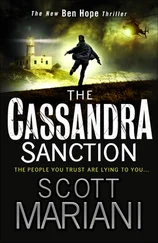It was perfectly sane men who made the World War, who allowed the private capitalist system to smash itself to fragments in spite of reiterated warnings, and who came near to destroying mankind. If the reader were sent back only for the hundred and seventy years between now and 1933, he would still feel a decided uneasiness about what people might or might not do next. Yet as he fought down his alarm and went about among them he would have found them as completely satisfied of the sanity of their own mental shapes as he was.
Presently he would have found himself trying to adapt himself to those mental shapes. In the end he might come to realize that, in his own case also, it might be that the things he felt compelled to believe and do, and the things he found impossible to believe and do, though they had served his everyday purposes in his own time fairly well, were no more final in the scheme of things than the ideology that framed the motives and acts of a Roman emperor or a Sumerian slave.
The difficulty in the comparison and understanding of past mental states with our own increases rather than diminishes as we approach the present, because the differences become more subtle and more interwoven with familiar phrases and with values we accept. We cannot keep in mind that meanings are perpetually being expanded or whittled away. We live to-day so saturated in our circumstances, so full of the security, abundance and vitalizing activity of our world-commonweal, that it is hard to realize how recently it was possible for minds of the highest intelligence to call the most fundamental conceptions of our present order in question. Even in the middle Twentieth Century, ideas that now seem so natural and necessary to us that we cannot imagine them disputed, appeared extravagant, impossible and offensive to brains that were in their essential quality just as good as the best alive to-day.
In the early half of the Twentieth Century a great majority of educated and intelligent men and women had no faith whatever in the Modern State; they hated it, feared it and opposed it, and it is doubtful whether the balance was redressed until the Twenty-first Century was well under way. The Modern State was built up, by comparatively mediocre men, upon whom the necessary group of ideas happened to strike with compelling force. As H. Levy insisted in his Universe of Science as early as 1932 (Historical Documents: General Ideas Series, 192301), science is a “social venture” rather than an accumulation of individual triumphs. Both the scientific idea and the idea of the human community were not individual but social products. And the Modern State prevailed because its logic steadily conquered not this man in particular nor that man in particular, but the sense of fitness in the general human intelligence.
Maxwell Brown, in his monumental studies of the growth of the Modern State idea, has made a fairly exhaustive review of the art and literature of the early Twentieth Century. Except in the writings of a few such sociologists as J. A. Hodson, Harry Elmer Barnes, James Harvey Robinson, C. A. and Mary Beard, Raymond B. Fosdick and a few American and English journalists, and in such alarmist fantasies as Aldous Huxley’s Brave New World, there is no sense whatever of the immense revolutionary changes that were occurring in the social structure. Bernard Shaw, for example, though classed as a revolutionary writer, never, except in his preposterous Back to Methuselah, anticipated. The mass of his work was a witty and destructive commentary upon contemporary things, ending in that petition in bankruptcy, Too True to be Good. He had to a supreme degree the opposition mentality of the Irish.
This estrangement of literature from the Modern State movement became more marked throughout the nineteen twenties and thirties. As reality became urgent, as war and insolvency descended upon social life, literature, art and criticism recoiled into studies and studios and their own bitter and peculiar Bohemia; they became elaborately stylistic and “rare”, or brilliantly or brutally smutty.
This decadence of literature, says Maxwell Brown, was an inevitable expression of the economic decadence of the Thirties and Forties. He draws an illuminating contrast between the type of mind primarily directed towards æstheticism and the type of mind primarily directed towards science. The “æsthetic producer”, he insists, is dominated by acceptance; he writes for response. The scientific worker aims at knowledge and is quite indifferent whether people like or dislike the knowledge he produces. Æsthetic life therefore is conditioned by the times; science conditions the times.
Literature and art are necessarily time-servers, either abjectly so or aggressively and pretentiously so. They deflect real moods or speculate upon possible moods in the community. It is no good writing books that people will not read or painting pictures from which they merely turn away. Psychology in those days had not developed sufficiently to permit of a scientific analysis of creative work, and such criticism as there was, when it was not a simple release of spite, was essentially an effort either to persuade or to browbeat people into buying books and pictures or listening to music of a type fancied by the critic. It was more bitterly partisan and propagandist than political discussion.
In the expansive phase of the later nineteenth century the general confidence of the prosperous classes was reflected in a large, hopeful, forward-looking complacent literature, and every critic was, so to speak, an uncle, a prosperous uncle, sitting by the fire, but the sense of contraction and advancing dangers that troubled the patrons of art and literature as the twentieth century unfolded threw a defensive quality over the intellectual world, outside the spheres of science and invention. The progressive note was popular no longer. The reading offered to the people was pervaded by a nagging hostility to new things, by lamentations for imaginary lost loyalties and vanished virtues.
It was not so much that the writers of the time desired civilization to retrace its steps, as that they wished that no more steps should be taken. They wanted things to stop — oh, they wanted them to stop! The underlying craving was for consolidation and rest before more was lost. There was little coherent system in the objections taken; it was objection at large. Mass production was very generally reprehended; science rarely got a good word; war — with modern weapons — was condemned, though much was to be said for the “chivalrous” warfare of the past; there were proposals to “abolish” aeroplanes and close all the laboratories in the world; it was assumed that hygiene, and especially sexual hygiene, “robbed life of romance”; the decay of good manners since the polished days of Hogarth, Sir Charles Grandison and Tony Lumpkin was deplored, and the practical disappearance of anything that could be called Style. As one nineteenth-century American writer lamented, in suitably archaic English:
“How life hath cheapened, and how blank
The Worlde is! like a fen
Where long ago unstained sank
The starrie gentlemen:
Since Marston Moor and Newbury drank
King Charles his gentlemen.”
That was the dominant note.
Maxwell Brown gives a volume of material, quotations (Literature Hangs Back; Historical Documents: General Ideas Series 311002) from about four thousand representative books and papers.
As the world emerged again from the sheer desolation of the Famished Fifties and the great pestilence, this purely opposition mentality revived in hundreds of thousands of elderly literate people whose brains had been fitted and turned round in that way for good. It revived because it was all there was to revive in them; and it met with all too ready and natural an acceptance among those endless myriads of cleverish active people who were now trying to get private businesses and private profit systems going before it became too late for ever, between the expanding system — of the Transport Control and its collaterals above, and the inarticulate and still needy masses below. They did not realize how much the revival of prosperity was due to the new organization. It was not in their type of mind to want to account for revivals of prosperity. What they desired to do was to take advantage of the “turn of luck”. To them from the first the Transport Control appeared as a formidable competitor, harsh in spirit and still harsher in method, which had set itself to prevent smaller brighter folk making hay while the sun shone. They were only too eager to see it as a huge, cheap, nasty, vulgar menace to all the jolly little profits and rewards and assurances that were peeping up again in life. For the loyalty and obedience of servants, it offered them ingenious mechanical arrangements; for the labour of respectful toilers, it suggested indifferent and dangerous power machinery. Are we not wise and virtuous enough in ourselves, they asked, that this World Control should come “tidying us up”?
Читать дальше











